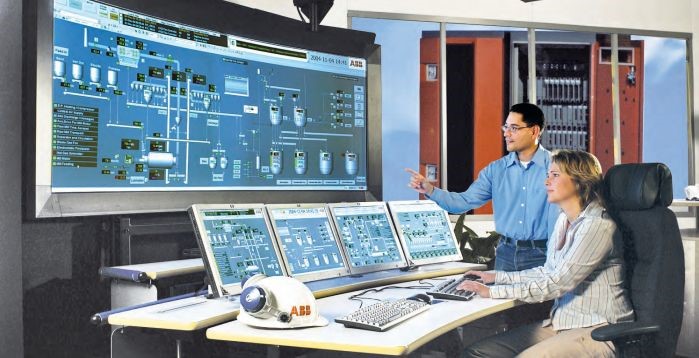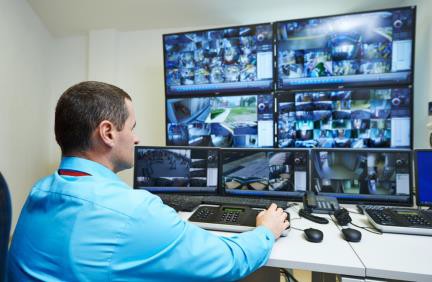Advance Your Skills with Expert Instrumentation Engineering Courses
In the dynamic and interconnected world of technology, mastering the fields of Instrumentation, Control, Telecommunications, and Computer Engineering is essential for driving innovation and efficiency across various industries. Our comprehensive Instrumentation engineering courses are meticulously designed to equip learners with the knowledge and skills required to excel in these pivotal areas. By enrolling in our programs, learners will embark on a transformative educational journey, gaining invaluable insights and practical experience that will enable them to become innovators and leaders in their respective fields.
Instrumentation Engineering: Instrumentation engineering focuses on the design and development of devices that measure and control physical and environmental variables. Our Instrumentation engineering courses cover a wide array of topics, including sensors and transducers, data acquisition systems, and process control instrumentation. Learners will delve into the principles of measurement, calibration, and signal processing, acquiring a deep understanding of how to develop precise and reliable instrumentation systems. With hands-on experience using industry-standard tools and software, learners will be prepared to tackle complex engineering challenges and drive process improvements in sectors such as manufacturing, healthcare, and environmental monitoring.
Control Engineering: Control engineering is at the heart of automation and process optimization, focusing on the design of control systems that regulate the behavior of dynamic systems. Our curriculum in Instrumentation engineering courses encompasses key areas such as control theory, system modeling, and control system design. Learners will explore the intricacies of feedback control, stability analysis, and controller tuning, gaining insights into how to develop robust and efficient control systems. Through practical lab work and industry-relevant projects, learners will develop the technical expertise and problem-solving skills necessary to innovate and optimize control systems in industries ranging from aerospace and automotive to chemical processing and robotics.
Telecommunications Engineering: Telecommunications engineering is critical for the development and maintenance of communication networks that connect the world. Our Instrumentation engineering courses cover a wide range of topics, including digital communication systems, wireless communications, and network protocols. Learners will delve into the principles of signal transmission, modulation techniques, and network architecture, gaining a deep understanding of how to design and optimize communication networks. With hands-on experience in telecommunications labs and exposure to cutting-edge technologies, learners will be prepared to contribute to the development of next-generation communication systems, ensuring seamless connectivity in an increasingly digital world.
Computer Engineering: Computer engineering integrates principles of electrical engineering and computer science to develop hardware and software solutions for modern computing systems. Our Instrumentation engineering courses curriculum covers key areas such as computer architecture, embedded systems, and software development. Learners will explore the intricacies of microprocessor design, digital logic, and programming, gaining insights into how to develop innovative computing solutions. Through practical lab work and industry-relevant projects, learners will develop the technical expertise and problem-solving skills necessary to design and optimize computer systems for a wide range of applications, from consumer electronics to industrial automation.
Benefits of Our Courses: Enrolling in our Instrumentation engineering courses programs in Instrumentation, Control, Telecommunications, and Computer Engineering offers numerous advantages for learners, providing a robust foundation for professional growth and career advancement. Firstly, our courses are designed to offer a balanced blend of theoretical knowledge and practical experience. This ensures that learners can apply what they have learned in real-world scenarios, making them highly valuable to potential employers. Secondly, our programs foster critical thinking, creativity, and innovation. These skills are crucial for developing new technologies and solutions that address current and future challenges in various industries.
Additionally, our Instrumentation engineering courses provide learners with the opportunity to work with cutting-edge technologies and industry-standard software, ensuring they are proficient in the tools and techniques used by professionals. Our experienced faculty, who are experts in their respective fields, offer mentorship and insights, guiding learners through complex concepts and practical applications. The collaborative learning environment encourages teamwork and interdisciplinary collaboration, preparing learners to thrive in diverse, dynamic work settings.
Completing our Instrumentation engineering courses programs can open doors to a wide range of career opportunities. Course completionists will be well-prepared to pursue roles in sectors such as telecommunications, automation, information technology, and industrial process control, among others. Whether aiming to work in established industries or emerging sectors, the skills and knowledge gained from our courses will be invaluable. Our alumni have successfully transitioned into roles in leading companies, research institutions, and regulatory agencies, making significant contributions to technological advancements and sustainable development.
In conclusion, our comprehensive Instrumentation engineering courses in Instrumentation, Control, Telecommunications, and Computer Engineering are designed to empower learners with the expertise and confidence needed to excel in today’s fast-paced, technology-driven world. By investing in their education through our courses, learners will not only enhance their professional skills but also contribute to the advancement of engineering practices, driving innovation and excellence in their chosen fields. Through our programs, learners will be equipped to tackle the complex challenges of the modern technological landscape, pioneering solutions that promote efficiency, connectivity, and technological progress.








